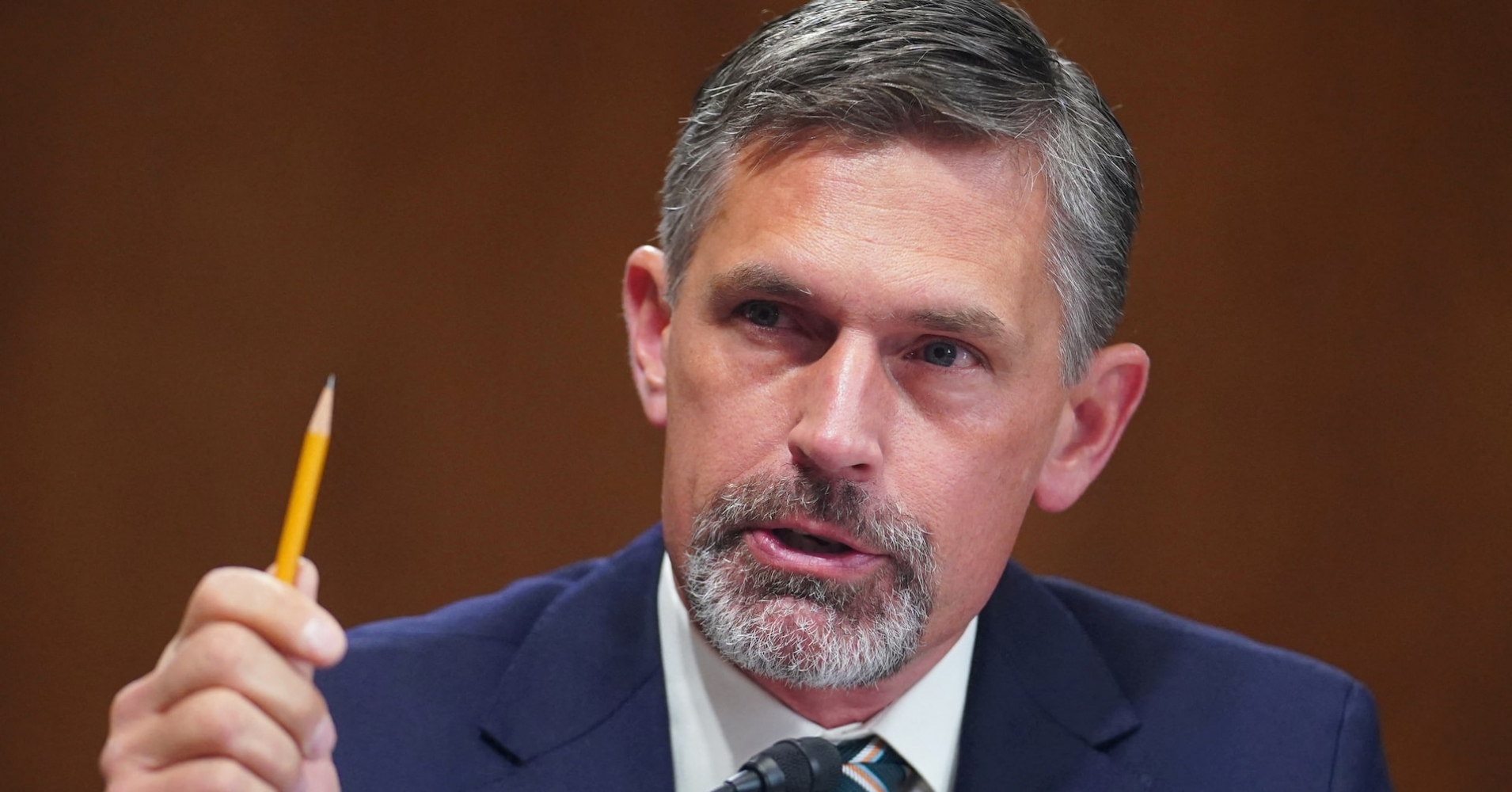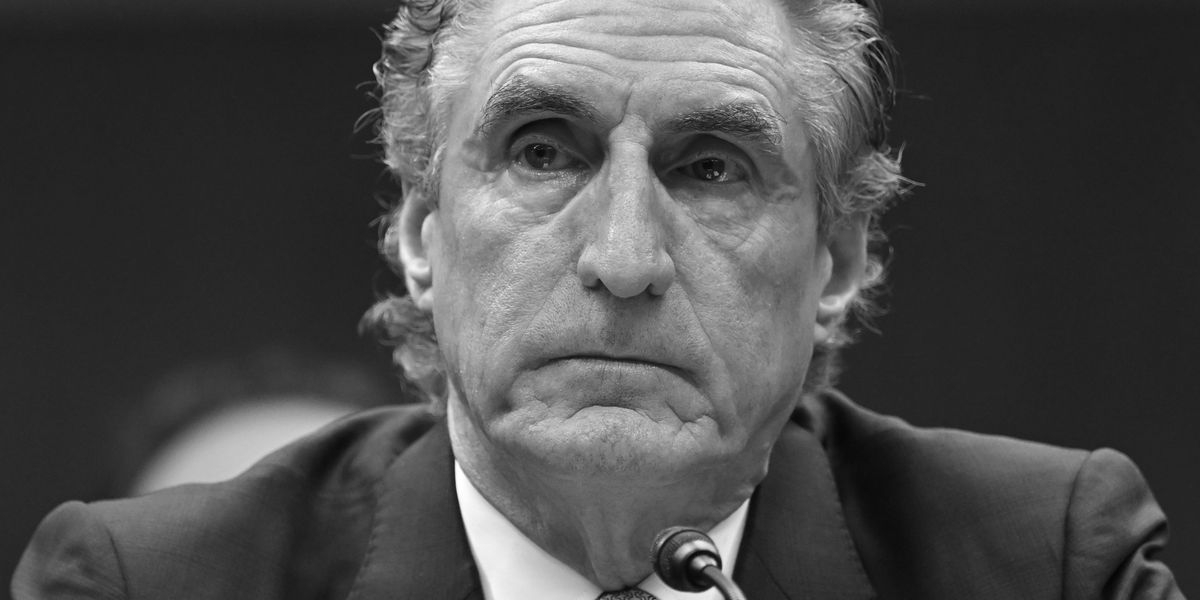

Published on: 07/29/2025
This news was posted by Oregon Today News
Description
Summer is typically a time when school workers can catch up with their loved ones, maybe take some classes themselves and recharge.
That’s not the case this year for teachers like Larry Delaney.
Delaney is the president of the Washington Education Association, which represents 84,000 public school educators and employees statewide. He’s a high school math teacher in the Lakewood School District and has been serving as the WEA president since 2019.

“Summer breaks (are) a time when … we tell them, you know, ‘Relax, recharge,’” Delaney told OPB at the National Education Association’s annual assembly in Portland earlier this month. “Now, we’re going to have educators looking at the news wondering if they’re going to have a job next year.”
Delaney said this week that school districts, educators and state agencies are being “whipsawed” right now because of all the federal threats, suspensions and changes to public education funding.
Congress allocated funding for the upcoming school year in a continuing resolution that they approved and President Trump signed into law in March.

But just three months later, on June 30, the U.S. Department of Education sent a message to education agencies in all 50 states, warning that funding for five federal programs was undergoing further review “in accordance with the President’s priorities.”
The message from the federal government came just one day before school districts expected to receive the money that Congress had approved for the upcoming school year.
Among the programs at risk of losing funding were migrant education, professional learning for educators, support for English language learners, and before- and after-school programs.
The timing of the federal agency’s announcement was especially problematic, as school boards in Oregon are required to approve budgets for the upcoming school year by the end of June. This varies by state — Washington’s deadline to adopt a budget is in August.
Delaney said there’s a need for stability as all these timing factors collide.
“Normally, this period is in the spring, when we navigate a state legislative session,” he said. “By the time April rolls around, we have an idea of what came out of Olympia, what came out of our state legislature. We can plan accordingly. Districts can plan accordingly. Classroom teachers can plan accordingly.
“But at this point, there’s still so much unknown.”
Money is flowing, but will strings be attached?
A coalition of 24 states — including Oregon and Washington — and the District of Columbia sued the Trump administration over its decision to freeze what was originally more than $6 billion in federal education grants for K-12 schools and adult education. Some of the money was restored after an 18-day delay, reducing the total amount withheld to nearly $5 billion.
This past Friday, a top official at the U.S. Education Department announced the remaining money would be released to states soon.
Delaney said this whiplash means that educators and districts hear one thing, they begin planning for that, and then they have to change plans again.
“There are also lots of rumors out there,” he said. “Yes, this is good news that these dollars are not going to be clawed back, but I would say that, still, school districts and educators are approaching this definitely with some skepticism and some caution.”
Delaney said many people are hearing rumors that there may be strings attached to the “returned” money — he made a point to clarify that “returned” isn’t quite the right word for money that was previously approved. One of the rumors, for example, is that the dollars will be tied to immigration status.
“With many of these rumors, they have come to fruition,” he said. “So, yeah, it’s still remarkably challenging.”
Trump has conditioned money before. Even when some of the withheld grant funds were restored earlier this month, they were only released under the condition that schools not use the money “in any manner that violates the United States Constitution,” the Civil Rights Act or other laws.
As reported by the nonprofit news organization CalMatters, the White House’s earlier attempts to roll back diversity programs in schools have often cited the Civil Rights Act as a rationale, saying initiatives that favor certain student groups are inherently discriminatory.
If all funding had been permanently withheld in the July freeze, Washington state officials said they would have seen an immediate decrease of $137 million in federal K-12 funding, affecting all of the state’s nearly 300 school districts.
“This had the potential to put several school districts in financial distress, cause educators and school staff to lose jobs that are essential to student learning, and limit the core services that students typically receive and rely on to help them be successful in school,” State Superintendent Chris Reykdal said in a statement Friday.
Education officials and families in all 50 states worked together to change the outcome, Reykdal added, with congressional lawmakers from both sides of the aisle urging the Trump Administration to release the money.
This was not the first time the Trump administration singled out these programs, as reported by NPR. The administration’s proposed 2026 fiscal year budget eliminated all the grants that had been frozen.
Oregon was poised to lose more than $62 million even after some money was restored in mid-July. Oregon has nearly 200 school districts across the state.
Before Friday’s announcement, Liz Merah, a spokesperson for the Oregon Department of Education, said in an email to OPB that eliminating programs, such as those for English language learners and migrant students, would “undermine the state’s efforts to increase academic outcomes for multilingual students … close opportunity gaps, and provide targeted support to mobile and vulnerable student groups.”
Additionally, she said withholding funds earmarked for summer school, after-school programs and mental health supports would have challenged the state’s efforts to ensure “all students are thriving in their education.”
According to NPR, the national education agency will begin dispersing funds to states this week.
Worries remain over range of federal changes as school year approaches
Delaney said that while school advocates focused most recently on education funding, federal cuts to other things, like healthcare, will also hurt children and families.
“It’s our students, it’s our communities, and in many instances, the communities that are historically marginalized and the most marginalized that are going to see the greatest impacts,” he said.
“And that’s just,” he restarted, “it’s not right in the richest country in the world.”
Heading into the new school year, Delaney said one of the biggest unknowns is which students will show up.
“With an increasing number of raids by ICE, there’s also a question about what enrollment is going to look like in the fall,” he said. “Are there going to be students who do not come back to school because they’re concerned, or their parents are concerned?”
Federal immigration officers under the Trump administration changed the longstanding practice of avoiding sensitive locations, such as schools, when apprehending people. ICE arrested a doctor outside his son’s Beaverton preschool earlier this month.
Delaney is also paying attention to the many budget scenarios districts may be planning for in case money is taken away again.
The money frozen this past month was for the upcoming school year, so the freeze did not result in schools having to quickly backfill funding. Still, he said they aren’t confident of what’s going to happen next.
“We’re in a period of rule by executive order,” Delaney said. “I don’t know too many people who can predict what may come next out of the White House.”
Delaney said the association has a special support and mentorship group for educators of color in Washington available as a resource. The union also provides benefits, such as emotional, financial or professional counseling, for its members.
He said the union is encouraging members to pay attention and get involved with their local school board races and contact their elected officials if they aren’t happy with something.
Even if teachers don’t want to get involved in politics, Delaney said, “There isn’t anything that impacts the work that they do in their classrooms and their schools and their work sites that isn’t decided by some elected official.”
News Source : https://www.opb.org/article/2025/07/29/teachers-washington-oregon-federal-funding-education/
Other Related News
08/02/2025
Dear Eric When my wife and I updated our wills she designated a diamond tennis bracelet an...
08/02/2025
DEAR ABBY I made a terrible mistake moving 2000 miles across the country to be closer to m...
08/02/2025
Four Democratic US senators on Friday slammed last months directive by Interior Secretary ...
08/02/2025
The department creates a seemingly impossible new permitting criteria for renewable energy
08/02/2025











